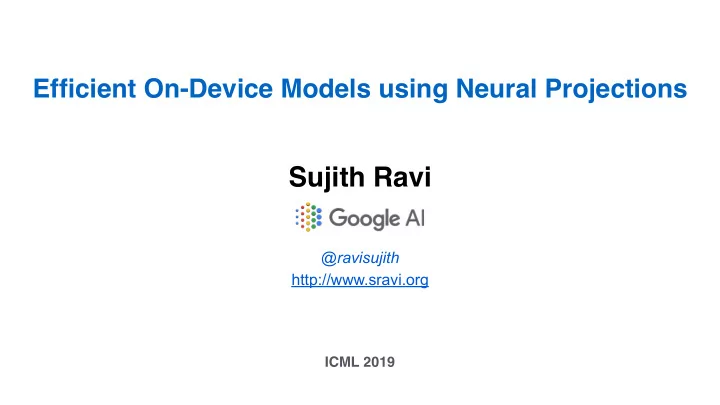
Sujith Ravi @ravisujith http://www.sravi.org ICML 2019 Motivation - PowerPoint PPT Presentation
Efficient On-Device Models using Neural Projections Sujith Ravi @ravisujith http://www.sravi.org ICML 2019 Motivation tiny Neural Networks big Neural Networks running on device running on cloud Sujith Ravi User Limited Efficient
Efficient On-Device Models using Neural Projections Sujith Ravi @ravisujith http://www.sravi.org ICML 2019
Motivation tiny Neural Networks big Neural Networks running on device running on cloud Sujith Ravi
User Limited Efficient Consistent Privacy Connectivity Computing Experience Sujith Ravi
On-Device ML in Practice Image Recognition Smart Reply on your mobile phone on your Android watch Blog “Custom On-Device ML Models with Learn2Compress”, Sujith Ravi “On-Device Conversation Modeling with TensorFlow Lite”, Sujith Ravi “On-Device Machine Intelligence” , Sujith Ravi Sujith Ravi
Challenges for Running ML on Tiny Devices ➡ Hardware constraints — computation, memory, energy-efficiency ➡ Robust quality — difficult to achieve with small models ➡ Complex model architectures for inference ➡ Inference challenging — structured prediction, high dimensionality, large output spaces • Previous work, model compression ➡ techniques like dictionary encoding, feature hashing, quantization, … ➡ performance degrades with dimensionality, vocabulary size & task complexity Sujith Ravi
Can We Do Better? ● Build on-device neural networks that ➡ are small in size ➡ are very efficient ➡ can reach (near) state-of-the-art performance Sujith Ravi
Learn Efficient Neural Nets for On-device ML Learning Inference (on cloud) (on device) Data ( x, y ) Projection model architecture (efficient, customizable nets) Projection Neural Network Optimized NN model, ready-to-use on device Small Size → compact nets, multi-sized ● Fast → low latency ● Efficient, Generalizable Deep Networks (our work) Fully supported inference → TF / TFLite / custom ● using Neural Projections Sujith Ravi
Learn Efficient On-Device Models using Neural Projections Sujith Ravi
Projection Neural Networks Fully connected layer Dynamically Generated Projection layer Intermediate feature layer (sparse or dense vector) Sujith Ravi
Efficient Representations via Projections operations as illustrated • Transform inputs using T projection functions functions P 1 , ..., P T , x i ) , ..., P T ( ~ x p i = P 1 ( ~ x i ) ~ • Projection transformations (matrix) pre-computed using parameterized functions ➡ Compute projections efficiently using a modified version of Locality Sensitive Hashing (LSH) Sujith Ravi
Locality Sensitive ProjectionNets • Use randomized projections (repeated binary hashing) as projection operations ➡ Similar inputs or intermediate network layers are grouped together and projected to nearby projection vectors ➡ Projections generate compact bit (0/1) vector representations Sujith Ravi
Generalizable, Projection Neural Networks Stack projections, combine with other operations & non-linearities to create ● a family of efficient, projection deep networks This sounds good Projection + Dense Projection + Convolution Projection + Recurrent Sujith Ravi
Family of Efficient Projection Neural Networks Transferable Projection Networks (Sankar, Ravi & Kozareva, NAACL 2019) ProjectionCNN SGNN++ SGNN: Self-Governing Neural Networks (Ravi, ICML 2019) Hierarchical, Partitioned Projections (Ravi & Kozareva, EMNLP 2018) (Ravi & Kozareva, ACL 2019) ProjectionNet (Ravi, 2017) arxiv/abs/1708.00630 + … upcoming Sujith Ravi
ProjectionNets, ProjectionCNNs for Vision Tasks Image classification results (precision@1) Table 1. Classification Results (precision@1) for vision tasks using Neural Projection Nets and baselines. Model Compression Ratio MNIST Fashion CIFAR-10 MNIST (wrt baseline) NN (3-layer) (Baseline: feed-forward) 1 98.9 89.3 - CNN (5-layer) (Baseline: convolutional) (Figure 2, Left) 0.52 ∗ 99.6 93.1 83.7 Random Edge Removal (Ciresan et al., 2011) 8 97.8 - - Low Rank Decomposition (Denil et al., 2013) 8 98.1 - - Compressed NN (3-layer) (Chen et al., 2015) 8 98.3 - - Compressed NN (5-layer) (Chen et al., 2015) 8 98.7 - - Dark Knowledge (Hinton et al., 2015; Ba & Caruana, 2014) - 98.3 - - HashNet (best) (Chen et al., 2015) 8 98.6 - - NASNet-A (7 cells, 400k steps) (Zoph et al., 2018) - - - 90.5 (our approach) Joint (trainer = NN) [ T=8,d=10 ] 3453 70.6 2312 76.9 [ T=10,d=12 ] [ T=60,d=10 ] 466 91.1 ProjectionNet [ T=60,d=12 ] 388 92.3 [ T=60,d=10 ] + FC [128] 36 96.3 [ T=60,d=12 ] + FC [256] 15 96.9 13 97.1 86.6 [ T=70,d=12 ] + FC [256] (our approach) (Figure 2, Right) ProjectionCNN (4-layer) 8 99.4 92.7 78.4 Joint (trainer = CNN) (our approach) (Conv3-64, Conv3-128, Conv3-256, P [ T=60, d=7 ], FC [128 x 256]) ProjectionCNN (6-layer) Self (trainer = None) 4 82.3 Joint (trainer = NASNet) 4 84.7 • Efficient wrt compute/memory while maintaining high quality Sujith Ravi
ProjectionNets for Language Tasks Text classification results (precision@1) Model Compression Smart Reply ATIS (wrt RNN) Intent Random (Kannan et al., 2016) - 5.2 - Frequency (Kannan et al., 2016) - 9.2 72.2 LSTM (Kannan et al., 2016) 1 96.8 - Attention RNN 1 - 91.1 (Liu & Lane, 2016) ProjectionNet (our approach) >10 97.7 91.3 [ T=70,d=14 ] → FC [256 x 128] • Efficient wrt compute/memory while maintaining high quality ➡ On ATIS, ProjectionNet (quantized) achieves 91.0% with tiny footprint ( 285KB ) • Achieves SoTA for NLP tasks Sujith Ravi
Learn2Compress: Build your own On-Device Models Data + (optional) Blog “Custom On-Device ML Models with Learn2Compress” Sujith Ravi
Thank You! http://www.sravi.org @ravisujith Paper Efficient On-Device Models using Neural Projections http://proceedings.mlr.press/v97/ravi19a.html Check out our Workshop Joint Workshop on On-Device Machine Learning & Compact Deep Neural Network Representations (ODML-CDNNR) Fri, Jun 14 (Room 203)
Recommend
More recommend
Explore More Topics
Stay informed with curated content and fresh updates.
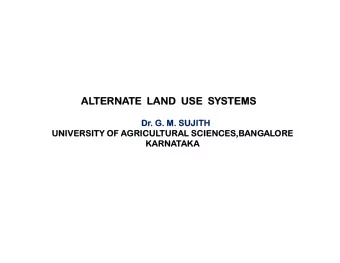
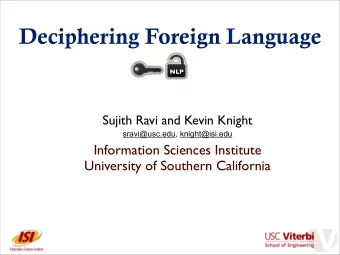
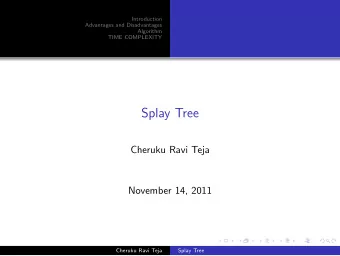
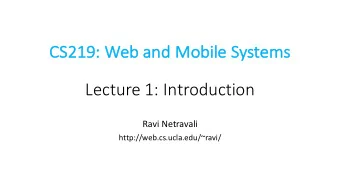
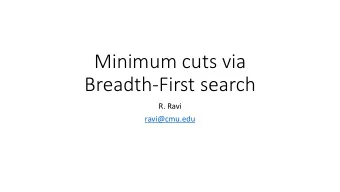

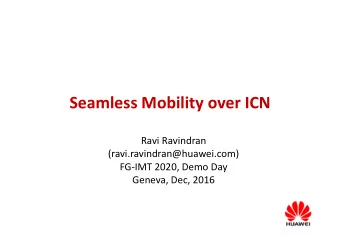
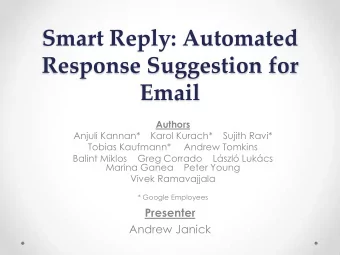
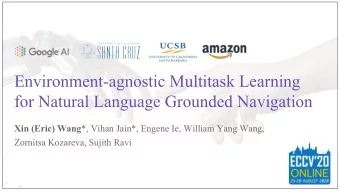
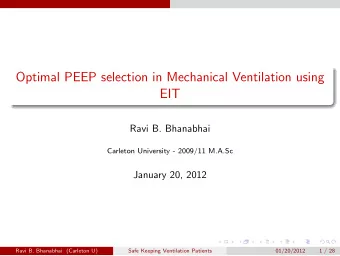
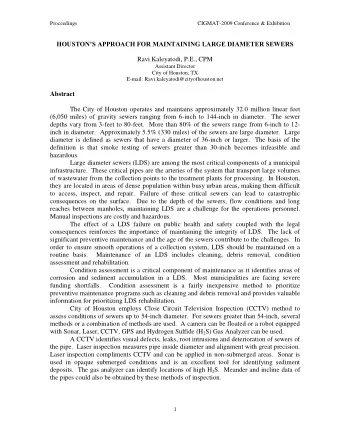
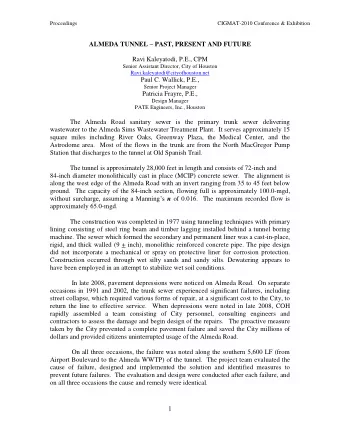

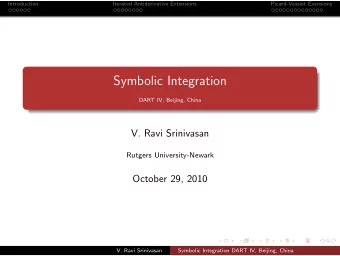
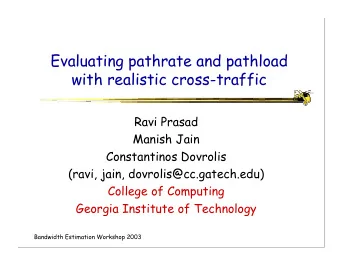
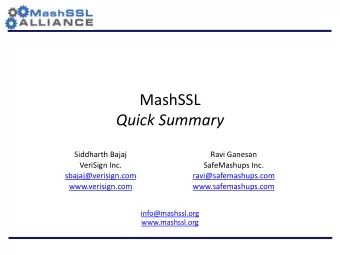
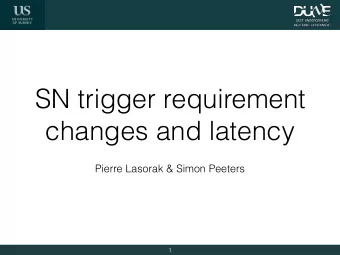
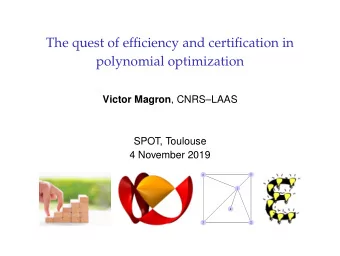
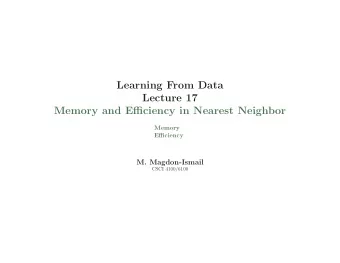

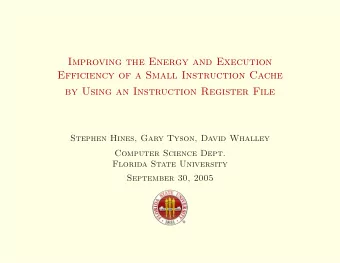
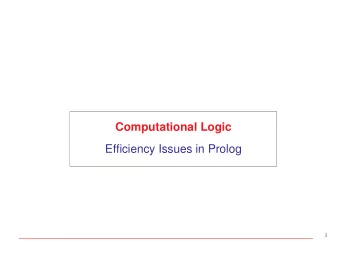
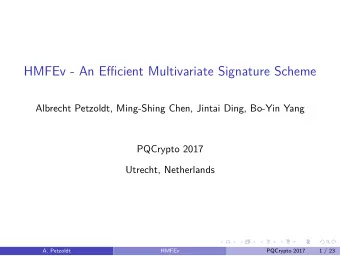
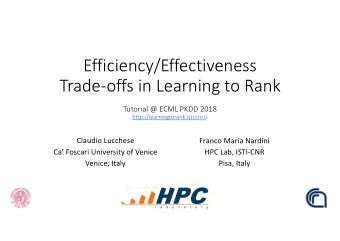
 Sambuz
Sambuz